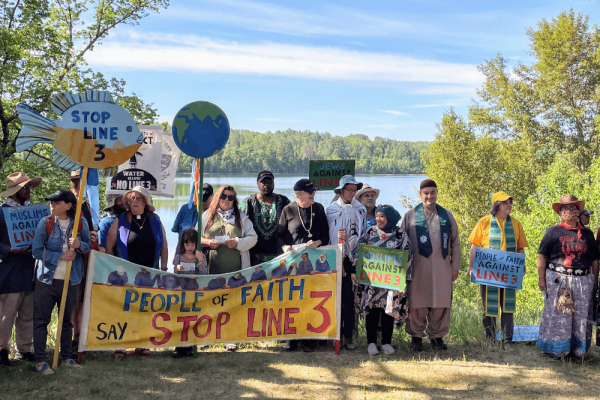Jun 16, 2021
In 1855, the Ojibwe people signed a treaty in Washington, D.C., that retained extensive land use rights in the Great Lakes region for hunting, gathering, fishing, and worship rights for the community. Today, the Ojibwe, who live throughout Minnesota, North Dakota, Wisconsin, Michigan, and Ontario, Canada, still retain these 1855 treaty rights, which are separate from reservation land.
But the Line 3 Replacement Project is seeking to cut through the land, which activists say would directly violate those treaty rights.
Read the Full Article

Already a subscriber? Login
